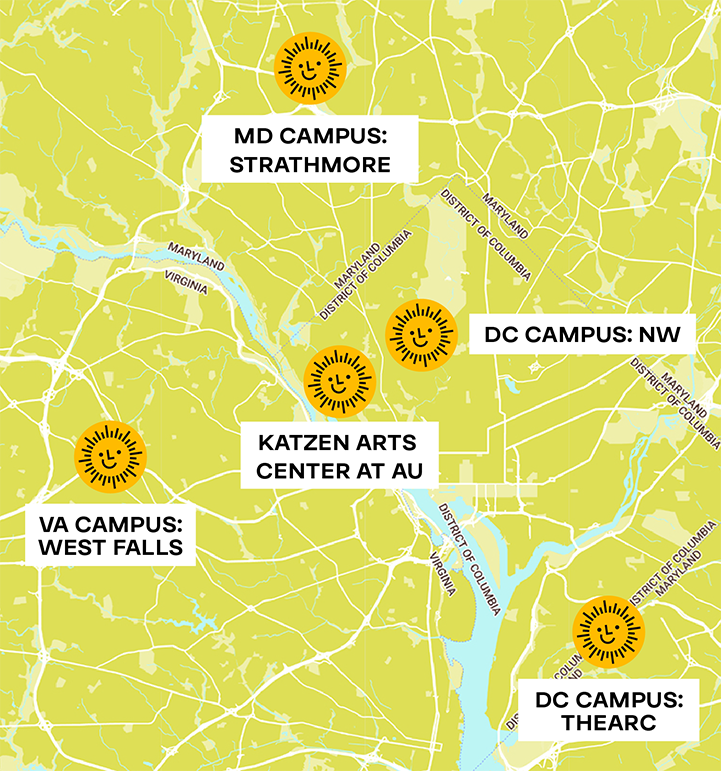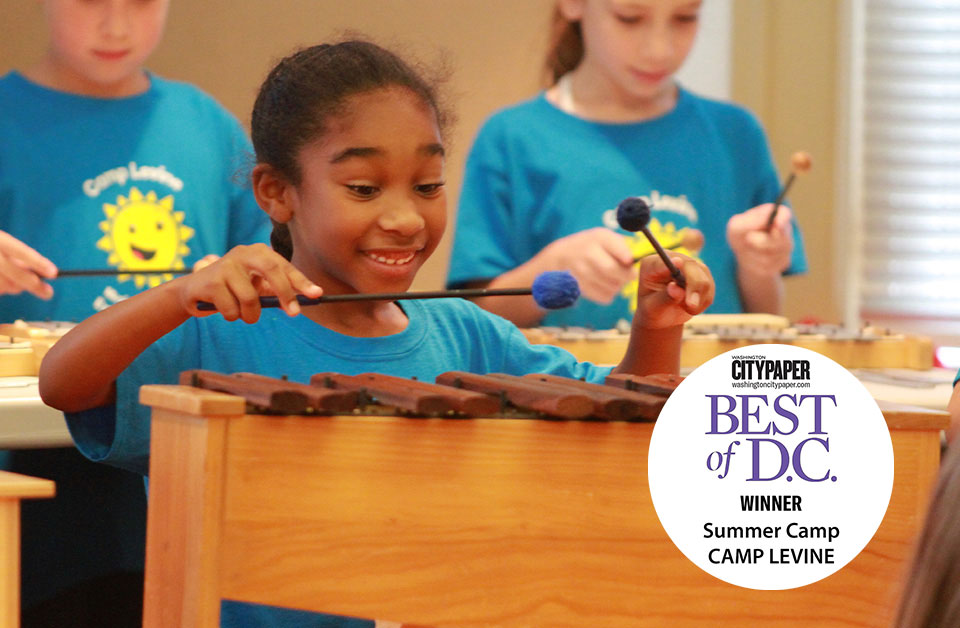Sights, Songs, and Sounds of the City
This summer at Camp Levine, we’ll celebrate through music and art the sights, songs, and sounds of cities! From the soulful jazz of New Orleans to the pioneering hip-hop of the Bronx, the electrifying blues of Chicago to the hometown go-go beats of DC, campers will explore how music and art grew from city neighborhoods.
We’ll also discover the rhythms in everyday city life, like playground rhymes and sidewalk beats, and turn them into our own creative expressions. Music, art, and unforgettable memories will come to life, inspired by the sights, sounds, and stories all around us.
Important Camp Levine Information
2026 Dates/Times
Session 1 June 22 – July 10 (no camp on July 3)
Session 2 July 13 – July 31
Full Day 9:30 AM – 3:45 PM
Half Day 9:30 AM – 1 PM (only available for Pre-K/K at MD Campus: Strathmore)
Before Care 8 – 9:30 AM
After Care 3:45 – 6 PM
2026 Tuition
Session 1 $1,512 (Full Day Tuition)
Session 1 $1,056 (Half Day Tuition MD Strathmore only)
Session 2 $1,599 (Full Day Tuition)
Session 2 $1,092 (Half Day Tuition MD Strathmore only)
Before Care $260/session
After Care $365/session
Enroll
Priority enrollment for returning campers and current Levine students begins on Wednesday, January 14, at 12 PM.
Open enrollment for all campers begins on Wednesday, January 21, at 12 PM.
Select the “Learn More” button for your preferred campus to begin your enrollment.
Need assistance enrolling? Please call (202) 686-8000 x1080 for assistance.

Locations
- DC Campus: NW
2801 Upton Street, NW, Washington, DC 20008 - Katzen Arts Center at American University *
4400 Massachusetts Avenue, NW, Washington, DC 20008 - DC Campus: THEARC **
1901 Mississippi Avenue, SE, Washington, DC 20020 - MD Campus: Strathmore
5301 Tuckerman Lane, N. Bethesda, MD 20852 - VA Campus: West Falls ***
255 West Falls Station Blvd, Falls Church, VA 22043
* Camp Levine at Katzen Arts Center is only available for Session 1.
** Camp Levine at THEARC is a 6-week program. Interested families must go through our Tuition Assistance Application and qualify for assistance to secure a spot at this location.
*** Campers must be 6 years or older to attend Camp Levine at the West Falls location and may only enroll for one session.
To learn more about our Camp Levine programs visit our programs page!

The #1 Summer Camp
Camp Levine has been recognized in the Washington City Paper’s annual “Best of D.C.” issue as one of the “Best Summer Camps in D.C.” for the last seven years, winning the title of #1 Summer Camp every year from 2021 through 2025!
